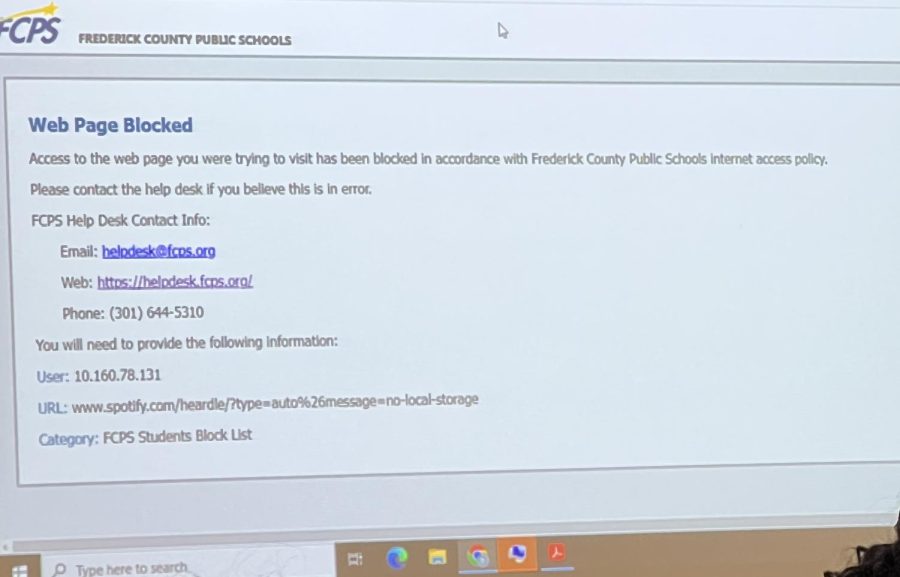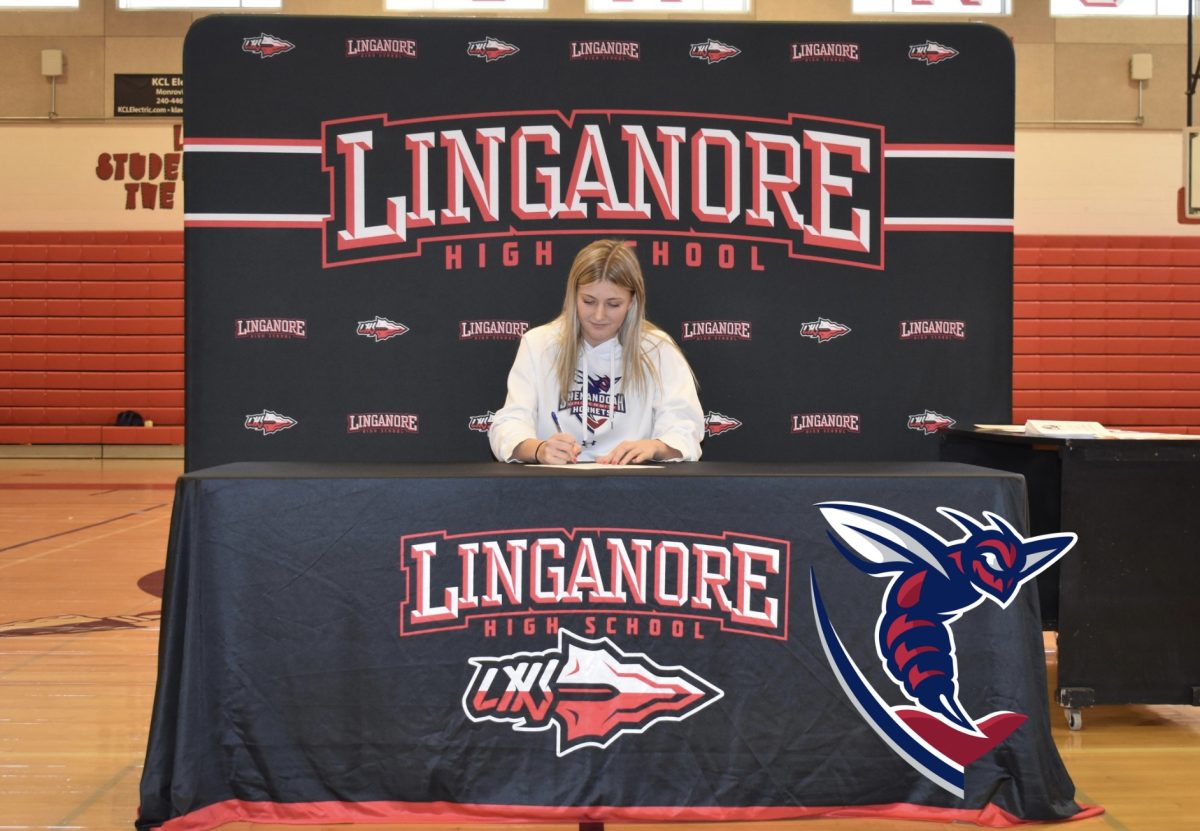FCPS’ frequent website blocks harm students and teachers
A teacher runs into a website they normally use that has been blocked.
June 2, 2023
At one point or another, every student has run into an issue with content being blocked by FCPS, it could be a YouTube video, a website, or images from google searches.
Something much more rare than seeing something blocked is seeing a teacher run into blocked content.
Even more rare than a teacher seeing a website they use blocked, is seeing a teacher have a website they made themselves blocked.
The exact scenario of teachers having their own websites blocked is something that some Linganore teachers deal with.
Kate Lane knows this problem very well. For her child development course, Lane made a class website over the course of years, only to have the website and all its resources to be blocked.
“I had to recreate all of those documents onto a Google master page with links and put that in Schoology, which was an enormous amount of work to redo something that has already been established,” said Lane.
Restricting internet use is a smart thing to keep students on task, but when websites teachers use get caught in the crossfire, there is an issue.
Darren Hornbeck is also very familiar with the issue of blocked websites. Hornbeck had three websites made for the electives he teaches, those being 9/11 to the Present, Sociology, and National and Global Issues.
With three websites on subjects that can be very complicated, the loss of the websites left students without very helpful information.
“The time it would have taken me to transfer information on the sites I took years to make would be beyond me,” said Hornbeck.
Teacher-made websites being blocked is certainly a big issue, but an even bigger problem that affects many more teachers is websites containing useful information being blocked.
English teacher Kendall Bille is one out of countless teachers who used to use websites like Sidesgo and SlidesMania to improve lessons. In addition to these template websites being blocked, Bille also encounters Spotify being blocked and unblocked inconsistently.
Even if a request is submitted to unblock a site, and it is unblocked. For some sites, this is only a temporary fix. When teachers return to an unblocked website at a later date, they find that it has been re-blocked, leaving them to follow the inconvenient process of submitting another request for a site whose access may be time-sensitive.
With resourceful websites getting blocked, it is ironic that ChatGPT is not blocked. ChatGPT is an AI that has become infamous among teachers worldwide because many students misuse the AI to cheat on schoolwork.
But how does the system of blocking work in the first place? It is not as easy as just pressing a button to block or unblock a website. Conor Nolan describes the process as trying to hit a moving target.
The most important thing when blocking or unblocking is the Children’s Internet Protection Act (CIPA). This law means filters have to be in place to prevent students from accessing inappropriate material.
Not only do students have to be protected but so does the technology infrastructure of FCPS. As a result, any websites that could harm the FCPS network are blocked, and with the amount of malicious advertisers and other third parties, helpful websites can be caught in the middle.
Student behavior is also a factor in this process, according to the FCPS Department of Technology Infrastructure, unapproved websites classed as games, streaming video and social networking are blocked by default.
When a request to unblock is submitted, there is a process that has to happen before decisions are made. This process includes verifying the website is not inappropriate, does not have security threats and that the website does not break FCPS policy.
Given the criteria, and the variety of useful, teacher-used websites that have the potential to be blocked, it is no shock that reviewing requests can take 10 business days to process. Given the volume of requests from teachers to unblock websites, it would be helpful to have multiple people review these requests.
FCPS’ Central Office did not respond to requests inquiring how many staff are currently responsible for reviewing unblock requests, so it is unknown if websites teachers use are remaining blocked because of a heavy of a workload.
It is evident that the process of blocking and unblocking websites, while serving a purpose, is inconvenient and faulty at best. When the criteria for blocking sites is so broad, the burden falls on the teachers to be able to do their jobs under increasing restrictions and on-going accessibility issues to sites and resources.






